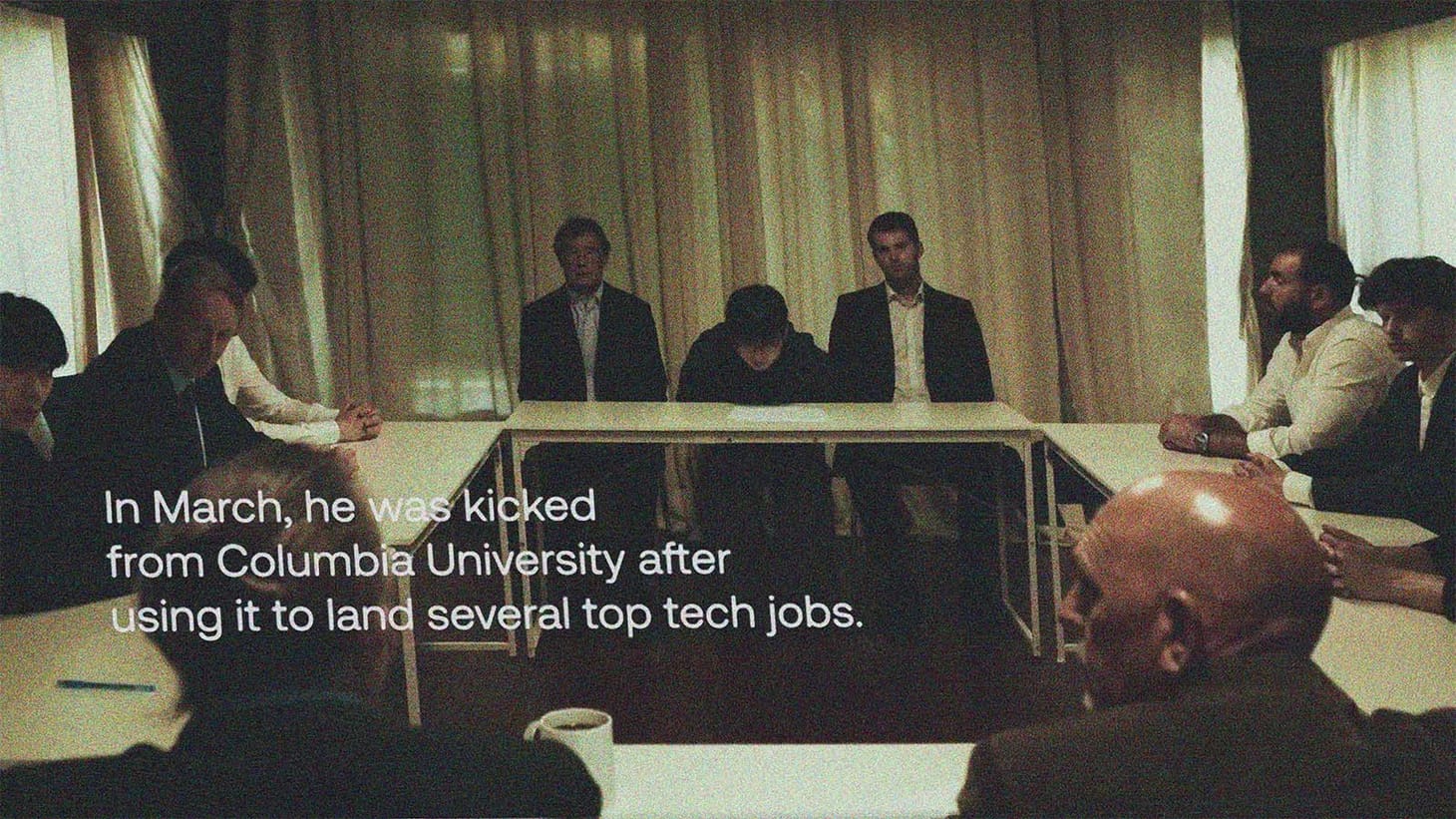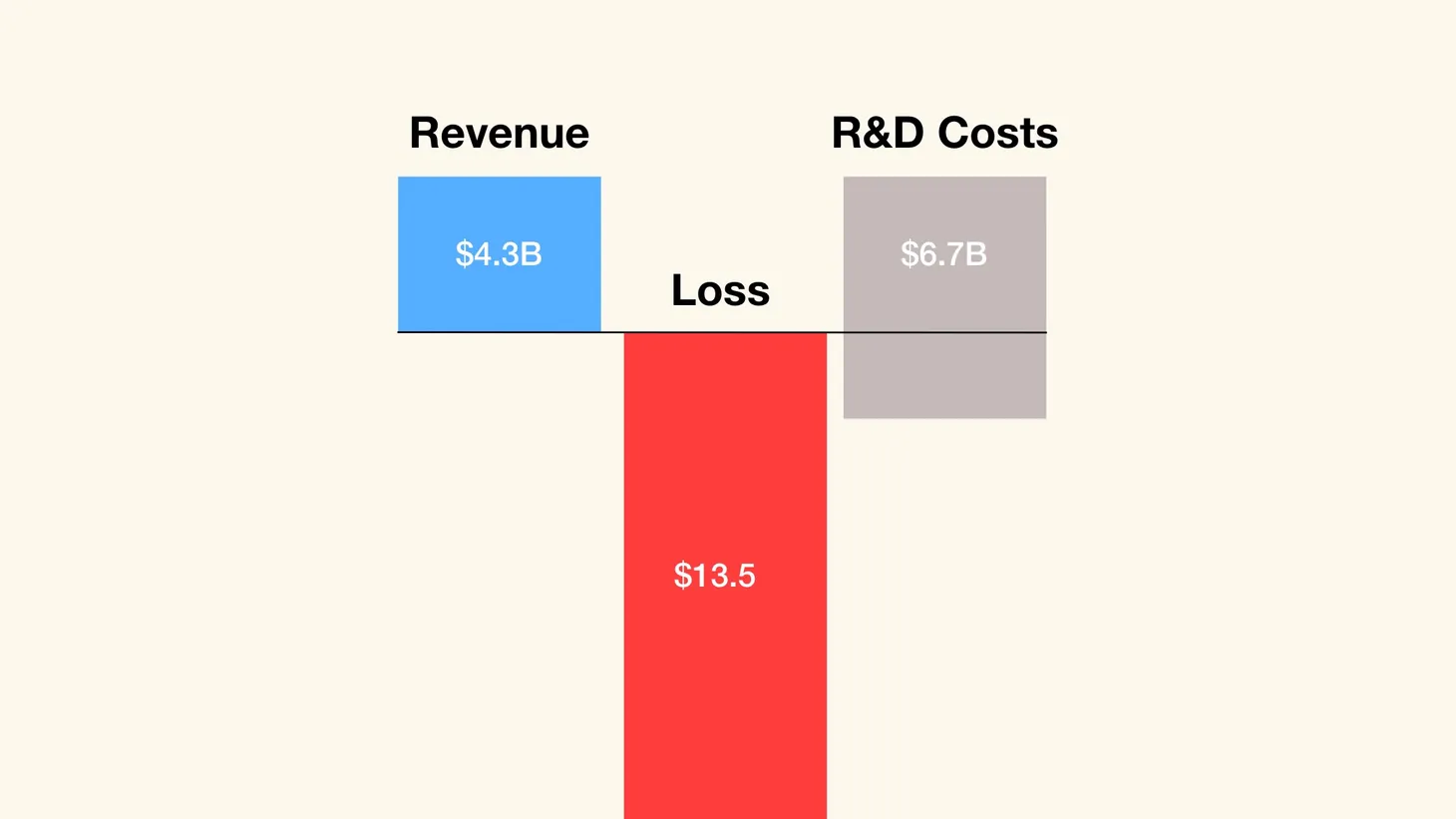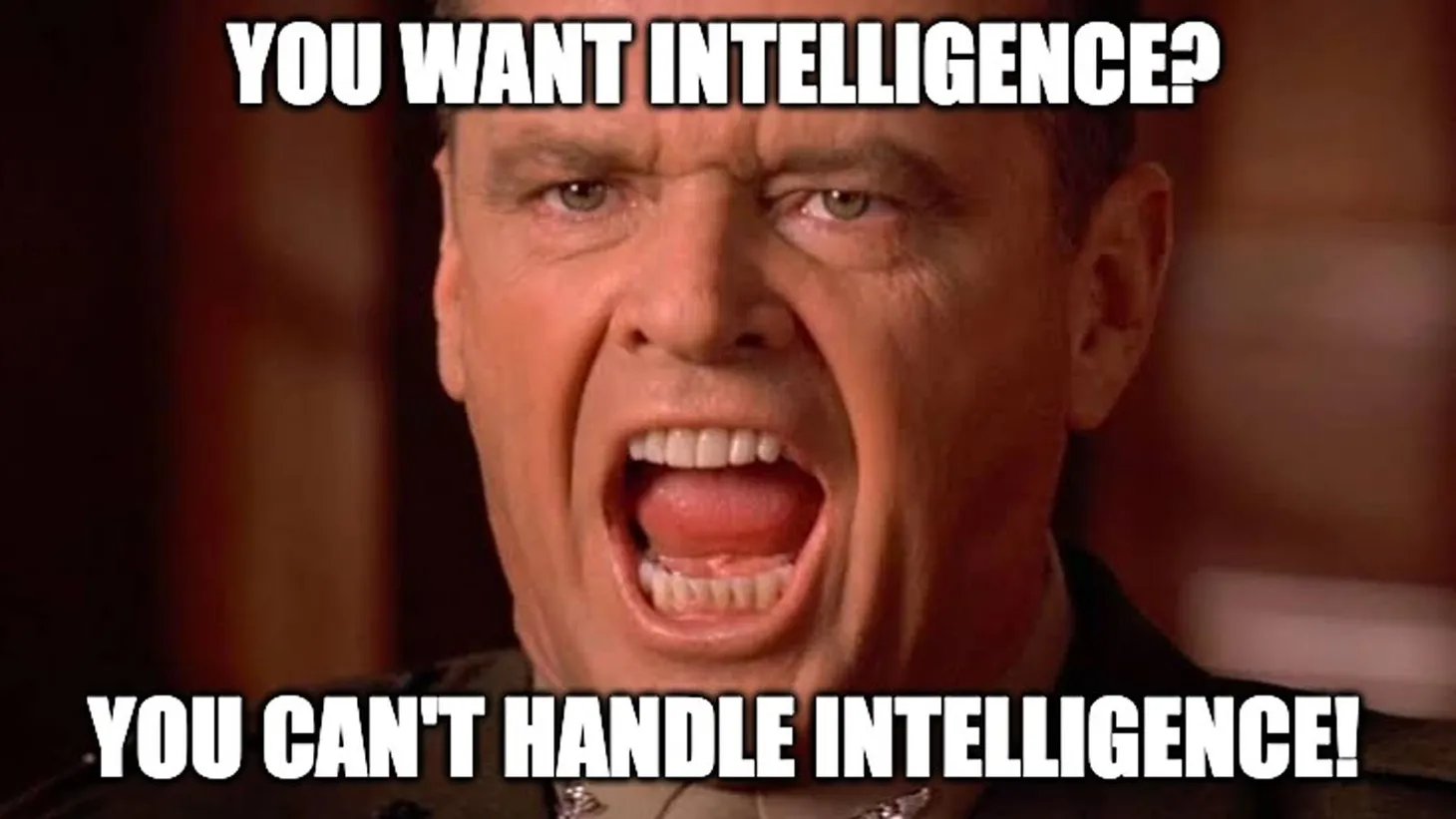Today It’s Cheating, Tomorrow It’s Fair
AI is the coworking of the 2020s: loved by customers, hyped by investors, and unable to make any profits.

Chungin “Roy” Lee was kicked out of Columbia University after he built an AI tool to help candidates cheat in job interviews. Columbia declined to corroborate the story, citing student privacy.
What we do know is that after leaving Columbia, Lee proceeded to launch a new start-up, Cluely, that aims to help users "cheat on everything." The way it works is simple: The app sits on your computer and monitors your screen, speakers, and microphone. Seeing what you see and hearing what you say and hear, it makes suggestions and answers any questions you have about whatever you're doing.
Earlier today, Cluely announced a $15-million fundraise, led by Andreessen Horowitz. This will likely boost their growth and, given where we are in the hype cycle, probably lead to an even bigger funding round within a few months. Cluely's new ad campaign expects everyone to use similar tools in the future; as they put it, "Today it’s cheating, tomorrow it’s fair."
Speaking of the hype cycle, Meta CEO Mark Zuckerberg reportedly offered $32 billion to acquire SSI, an AI startup led by ex-OpenAI co-founder Ilya Sutskever. Sutskever declined the offer, so Meta is now trying to hire SSI's CEO instead.
Also this week, Wix shelled out $80 million to acquire Base44, an AI app that helps anyone build other apps and web projects. Base44 was launched merely six months ago by 31-year-old Maor Shlomo. The startup has fewer than 10 employees, most of whom were hired over the past two months.
Is this just another bubble?
Not exactly. Demand for new AI tools is real and is growing fast. OpenAI, the leading AI startup, is on track to generate $10 billion in revenue this year. Claude, the friendlier but less-known ChatGPT alternative, is on track to bring in $3 billion this year. For comparison, the mighty Netflix generates about $30 billion per year. And the mighty Google took about three times longer to reach OpenAI's current revenue.
But revenue is not profit. Today's AI giants are more akin to 2010s WeWork than to 1990s Google. Their revenue growth is proof of incredible demand for something new and exciting. But their capital and operating expenses show no way of meeting this demand profitably.
The good news? WeWork ultimately figured out how to deliver exciting, flexible spaces and generate an operating profit. Will OpenAI, Claude, and other AI startups ultimately figure it out as well?
They might — but not before we see a few bankruptcies and painful restructures along the way.. Companies like Meta and Google are perceived as laggards in the AI race, but their existing cash-generating businesses and overall size put them in a better position to make the necessary investments and reap the rewards.
Unlike in the WeWork story world, the "landlords" of the tech world are not in denial about the promise of new technologies and consumer behaviors. They are going all in.
Have an excellent weekend. I made some updates to my website. Check it out: DrorPoleg.com.
Best,

🎤 What does AI mean for your company and career? My speaking schedule for the summer and fall is filling up. Visit my speaker profile and get in touch to learn more.
Old/New by Dror Poleg Newsletter
Join the newsletter to receive the latest updates in your inbox.




